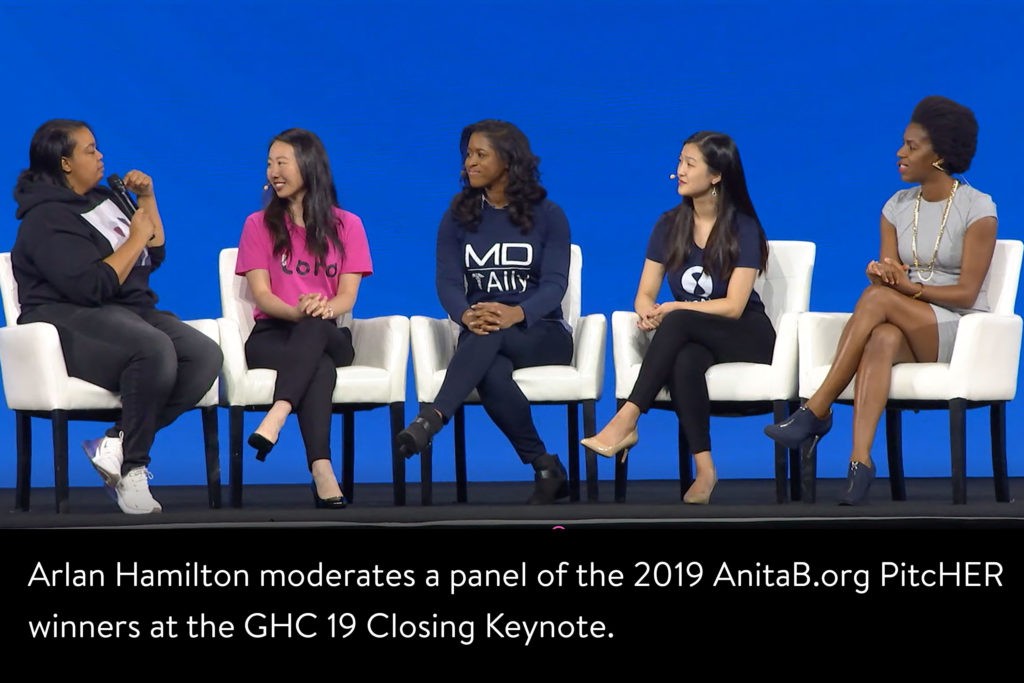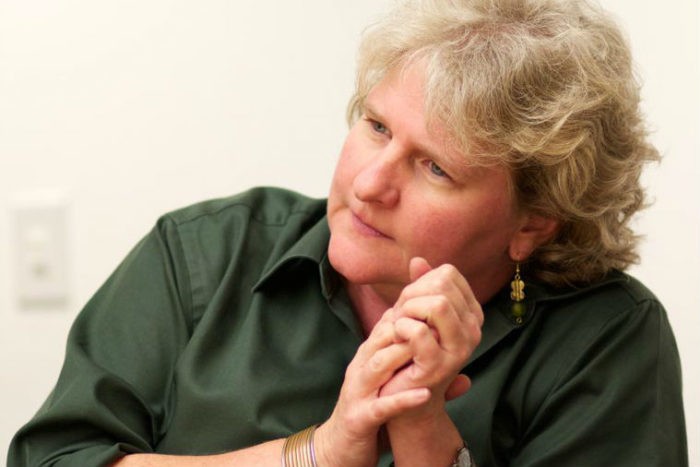Meet Dr. Rebecca Parsons, Technical Leadership Abie Award Winner

Meet Dr. Rebecca Parsons, Technical Leadership Abie Award Winner
Check out this video about Dr. Rebecca Parsons, along with her speech at the GHC 18 Opening Keynote and her GHC 18 session.
The Technical Leadership Abie Award is our most prestigious award and celebrates a woman who led or developed a product, process, or innovation that made a notable impact on business or society. This year’s winner is Dr. Rebecca Parsons, ThoughtWorks’ Chief Technology Officer. She will accept her award on the main stage at the 2018 Grace Hopper Celebration (GHC 18) in Houston, Texas.
For decades, Rebecca has used her knowledge and technical experience in applications development across a range of industries and systems. She has led the creation of large-scale distributed object applications and the integration of disparate systems. Furthermore, Rebecca is a strong advocate for diversity in the technology industry. Committed to increasing the number of women in coding and STEM fields, Rebecca served on the board of CodeChix and acted as an advisor to Women Who Code. She held the position of chairwoman for four years on the Agile Alliance Board of Directors, and has served the organization over a total of six years.
Early in her career, Rebecca worked as a Director’s Postdoctoral Fellow at the Los Alamos National Laboratory researching issues in parallel and distributed computation, genetic algorithms, computational biology, and nonlinear dynamical systems.
We spoke to Rebecca about the award, her career, and what she and ThoughtWorks are doing to promote diversity.
How did you first become involved with computing?
I started programming when I was about 14 years old. My algebra teacher happened to be taking a programming course at night at the university. He came into the class with a textbook and said, “Here, get out of the classroom. Here’s a PL/1 book. Work your way through it; I’ll run your programs for you when I go to the university.” That’s how I started programming, and I just fell in love with it.
What is it about computing and technology that appeals to you?
One of the fascinating things about modern technology is just how broad the footprint is. When I started, it was relatively simple. You had a mainframe and you had punch cards. You could understand the full stack. Now when you look at things that are in mainstream use, from artificial intelligence to the internet of things, there are lots of different sensors, devices, and sensor nets. None of these things are necessarily new, but so much more of it is becoming mainstream. As a result, the technology landscape is much more complex and much more fascinating.
What was it like being a gender minority in your computer science courses?
I was in a class where there were four women out of over 50 students, and the professor actually said, “Women are incapable of understanding math and computer science.” So the four of us women bonded together and said, “We’re going to prove this man wrong.” We all got A’s in the course.
Although three of us probably would have stuck it out if we were alone, the fourth didn’t have that level of confidence. I think if we hadn’t been there, if she hadn’t had that support, she probably would have dropped out. That’s something that I try to pay attention to. I’m very fortunate that my parents were supportive, and I hope to provide that kind of support to women who maybe don’t have it already.
Did you have any female mentors who helped you in your career?
I had very few mentors until I got to the university and joined the Systers list. I think mentorship is important because, regardless of who we are and what our experiences are, there are going to be times when we are going to feel uncertain. Having someone who understands and who can provide that nudge, that support, can make a real difference. Having support at the right time can open up possibilities that simply wouldn’t exist.
What inspired you to join ThoughtWorks?
I found that the organization was very highly aligned with my value system. The whole idea of having an impact and wanting to make a difference has been a core tenet of the company. I have probably focused it a bit more around gender diversity, but I think even without me here, this organization would still have been committed to things like that — to making the world a better place.
One of the important things that we’ve done in terms of recruiting more women — and more diverse individuals in general — is changing the way we source. If everybody is looking in the same places for people with the same profiles, you’re going to continue to find the same people. One of the things that we have started doing is looking at different places and for different kinds of people. We’re looking outside the computer science disciplines, looking at different universities, and getting involved in groups and activities.
What has been one of the highlights of your entire career?
When I started planning my sabbatical, I sat down and tried to decide what it was that I really wanted to get out of it. I focused on three things: I wanted to experience a culture that I hadn’t ever experienced, I wanted to make a difference and to have impact, and I wanted to take advantage of who I was and what I knew. I ended up becoming a Fellow for UNICEF.
I worked with UNICEF’s Technology for Development Group in Kampala, Uganda, and provided a high level of experience in delivering projects. For example, one of the projects they were working on when I was there was the digital drum. They wanted to put at least one kiosk in every village in Uganda. At that time, there were 55,000 villages in Uganda. I asked the senior technologist, “What’s your strategy for rolling out updates, configuration management?” They hadn’t really thought through what was going to be their strategy for maintaining. So I was able to bring that level of experience in and help them understand.
What legacy do you want to leave behind?
My desire is to be an impactful technologist. It makes a big difference to me to be able to have an impact on the world. I would like for people, when they look back at my career, to see the positive impact that I’ve had through the things that I’ve done, the projects that I’ve worked on, and the people I’ve worked with.
Meet Rebecca at GHC 18 on Friday, September 28 at 9 a.m. during our Abie Award Series, or on Wednesday, September 26 at 12 p.m. during Speakers Corner. See our full GHC 18 schedule for more details.
Interested in pre-registering for GHC 18 sessions? Click here to learn more.
Thank you to Intel, sponsor of the 2018 Technical Leadership Abie Award.

